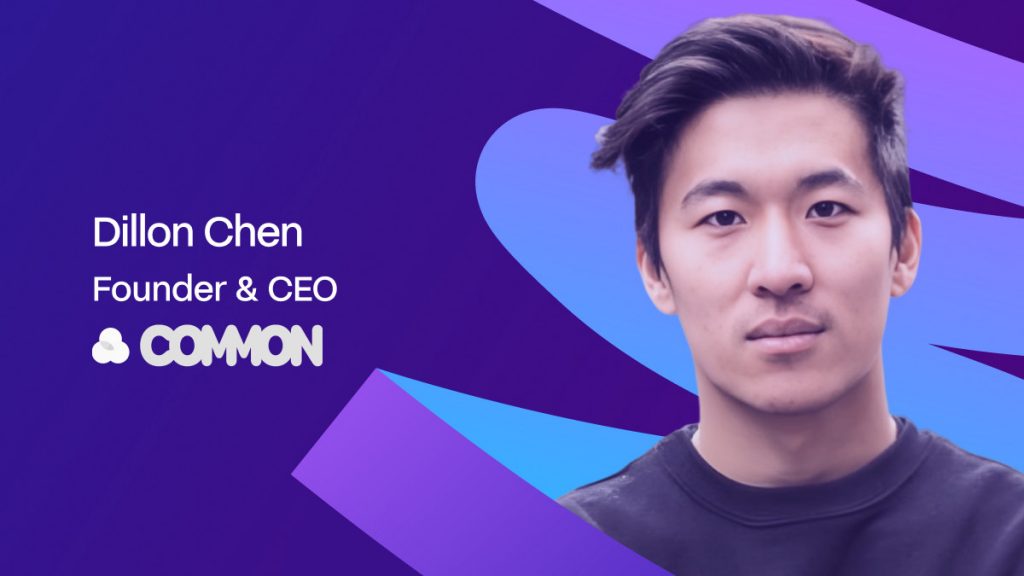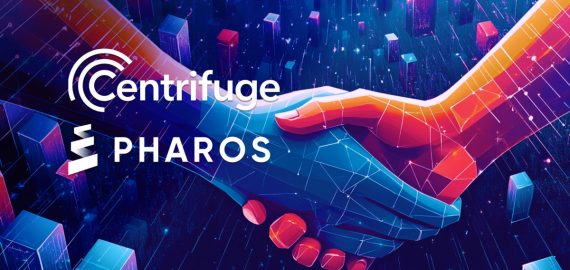Common.xyz Is Changing the Rules of Decentralized Collaboration


In Brief
Dillon Chen founded Common.xyz in 2013, revolutionizing Web3 community collaboration and governance. Common builds full-stack infrastructure, integrates AI agents, and envisions a future of billion-dollar companies.

Dillon Chen bought his first Bitcoin back in 2013, marking the start of a journey that would eventually lead him to found Common.xyz, a platform redefining how Web3 communities collaborate and govern themselves. In this interview, Dillon discusses how Common is building the full-stack infrastructure for decentralized communities, integrating AI agents into DAO workflows, and shaping a future where “one-person billion-dollar companies” could become a reality.
Dillon, could you please introduce yourself and tell us about your journey to Web3?
Yep, so I’m Dillon, the founder of Common. I got my start in crypto back in 2013 when I got my first Bitcoin. That was somewhere between high school and college. I would like to say I started with my ABCs: AI, bio, and crypto, and I was just exploring various ideas at the time. Purchasing Bitcoin was my entry point.
During my time at university, I did research on Bitcoin transactions and later started mining Ethereum using dormant electricity. I also worked on some crypto-focused college startup projects. Fast forward to today, Common was born out of our own pain point. We participated, both as a blockchain club and individually, in the original DAO. The tooling around that experience was really hard to use. There was so much confusion happening everywhere, especially on Twitter.
I guess we still live in a similar world today, but hopefully, Common is now a place where users and community members can talk about anything within their community, from grant proposals, new PRs, and feature requests to memes and other topics. They can even fund those initiatives with incentives while engaging in on-chain voting and DAO-based governance. So that’s a long answer for both my journey and how we got to where we are today.
Could you please explain how Common distinguishes itself from other platforms focused on on-chain communities and DAOs?
I think the core for us is building ourselves into a fully featured forum. There are many projects out there, some of which we partner with, that focus heavily on the on-chain governance aspect, like proposal execution. The way I like to think of it is similar to coding: when you raise a pull request that gets merged into a codebase, they focus on that process, showing who approved or disapproved it and running simulations.
DAOs work similarly, where proposals are voted on-chain and tracked. But we focus on the upstream aspect, right when someone has an idea. We want a community member to be able to create a thread, invite discussion, run an off-chain poll (token-weighted or not), and lead that idea through its entire lifecycle.
I also think of DAOs in a broader sense, not just token-based voting or large treasuries. Anything with a token that invites collaboration is something we help with. Meme coins, NFTs, and other community-driven tokens all have DAO aspects, and we support those as well.
One of the key components of Common is its full-stack approach. Would you walk us through what a full-stack platform for communities looks like in practical terms?
It comes down to three aspects: launch, earn, and grow. During the launch phase, you can directly launch a token on the platform, and it inherits all the functionality that we’ve built for other communities.
In the earn phase, there are different mechanisms that both users and projects can leverage to distribute tokens to contributors. One example is contests. Since Common has the form factor of a forum, users can post new threads and get upvotes. Based on the top-voted posts, communities can distribute native tokens for the best ideas. That’s just one of several mechanisms. There are also ways to reward token ownership, generate badges for members, or allocate off-chain points for pre-TGE projects.
Finally, in the grow phase, which is really the governance phase, once you have a thread or topic, you can create a proposal, use Snapshot, and vote directly on-chain through the platform. Launching, earning, and growing should all happen in one place.
What trends do you think will shape the future of decentralized governance and DAOs? How is Common preparing to adapt or contribute to these changes?
I think the most important thing is the autonomous aspect. To break down DAO: decentralized, autonomous, and organization. Over the past five years, people have focused mainly on decentralization, but now, with AI and agents, the autonomous aspect is coming to life.
A great example was OpenAI’s recent developer day. Agents and models are moving beyond being just chatbots. They can now perform useful work. The workflow builder, for instance, allows you to chat with an agent who uses multiple applications to produce meaningful results. These tools will continue to improve, think over longer time horizons, and contribute real work.
In the next five years, I think we’ll see “one-person billion-dollar companies” or even “zero-person companies,” where token holders act like board members giving high-level feedback to AI agents doing the work. At Common, we’re already building toward this future, supporting new workflows and enabling agents to contribute, vote, and collaborate toward a DAO’s shared goal.
In terms of onboarding new users to Web3, do you see any barriers that need to be overcome? What strategies do you use to simplify the user experience?
That’s a great question. The tooling has improved a lot in terms of usability. A wallet is still the core of your identity, whether it’s from Privy, Magic, or another provider. The wallet experience has come a long way, but onboarding still needs to be seamless because social apps tend to lose users quickly if the process is difficult.
The next important factor is use cases. We’ve moved beyond just saving money or holding digital gold. Now we see use cases that are more human and practical, like stablecoins, payments, and cards. These are things people use daily. The next frontier will be social use cases — prediction markets, DAOs, subreddits, and communities.
As tooling and use cases expand, people will start using Web3 in their everyday lives rather than checking their crypto once every few years. That’s what brings new users in.
According to your roadmap, you plan to integrate AI agents into Common. What specific tasks will they perform within communities?
We see three phases for integrating AI agents. The first is addressing community needs directly, such as summarizing threads or drafting new posts. These are low-hanging fruits, and we’ve already implemented them.
The second phase focuses on integrations. We want to pull data from where communities already live, such as Discord, Twitter, or even on-chain data. Agents will also connect with everyday tools like Google Sheets and Drive to enhance productivity.
The third phase ties back to what I mentioned earlier, enabling agents to think long-term, collaborate, and plan activities. As models improve, they’ll be able to work independently toward community goals. For example, an agent might gather user feedback from Discord, format a PR document, prototype a feature, and submit it for human review, all with minimal oversight. We’re getting very close to that reality.
Common has collaborated with some of the most innovative organizations in Web3. What partnerships or case studies are you most proud of? What do they reveal about Common’s impact?
A major milestone for us was assisting with the LayerZero launch. They’re one of the most respected and widely recognized communities in crypto, touching almost every token ecosystem. That trust meant a lot to us.
The process we supported was their airdrop distribution and community discussion. We had tens of thousands of posts from users worldwide. They used every feature on our platform — token-gated posting, multiple topics for triage, and structured discussion for a complex airdrop computation.
It went relatively smoothly, which is never easy behind the scenes. Any founder will tell you how chaotic things can get, but we managed to weather the storm and help them execute successfully.
What about future partnerships? Do you have anything upcoming?
We’re currently working with several EVM and non-EVM Layer 1 ecosystems. You’ll start seeing those launches in the next few months. These are the top 50 projects by market cap, which is a great sign of trust. Hopefully, by the time this interview is published, those collaborations will already be visible.
How do you see the industry evolving over the next three to five years? What role will Common play in this evolution?
If we look at crypto’s evolution, early use cases like Bitcoin were focused on high-value, low-frequency transactions. With DeFi, it became lower-value but higher-frequency. Stablecoins brought daily interactions. And with social applications, interactions are even more frequent but lighter.
Common fits squarely within this social layer. Whether through agents or community discussions, users will send hundreds of messages daily across their communities. We aim to be the always-on hub for that activity.
As new tokens and projects launch, we expect our community count, already above 80,000, to grow into the hundreds of thousands. Our vision is to have a community for every token and a token for every community idea. We’re well on our way there.
Finally, what are some of the most exciting innovations in Web3 you’re keeping an eye on? How do you plan to integrate them into Common?
It’s been amazing to see how much progress the industry has made. Back at DevCon Prague, terms like stablecoins, DAOs, prediction markets, and layer ones were just ideas. Now they’re all real, functional products.
One area that’s becoming increasingly important is privacy. As we reach mass adoption, privacy becomes critical for payments, where you don’t want everyone seeing your coffee purchases, and for social conversations that should remain private.
For DAOs, privacy is especially vital. Communities often discuss early-stage ideas or strategies that shouldn’t be public. Integrating zero-knowledge proofs for identity, so members can prove token ownership or contributions without revealing their identity, will help foster more open yet secure discussions.
That’s one of the biggest innovations we’re focusing on now, and we hope to productize it just as other technologies before it have come into their own.
Disclaimer
In line with the Trust Project guidelines, please note that the information provided on this page is not intended to be and should not be interpreted as legal, tax, investment, financial, or any other form of advice. It is important to only invest what you can afford to lose and to seek independent financial advice if you have any doubts. For further information, we suggest referring to the terms and conditions as well as the help and support pages provided by the issuer or advertiser. MetaversePost is committed to accurate, unbiased reporting, but market conditions are subject to change without notice.
About The Author
Victoria is a writer on a variety of technology topics including Web3.0, AI and cryptocurrencies. Her extensive experience allows her to write insightful articles for the wider audience.
More articles

Victoria is a writer on a variety of technology topics including Web3.0, AI and cryptocurrencies. Her extensive experience allows her to write insightful articles for the wider audience.


















































